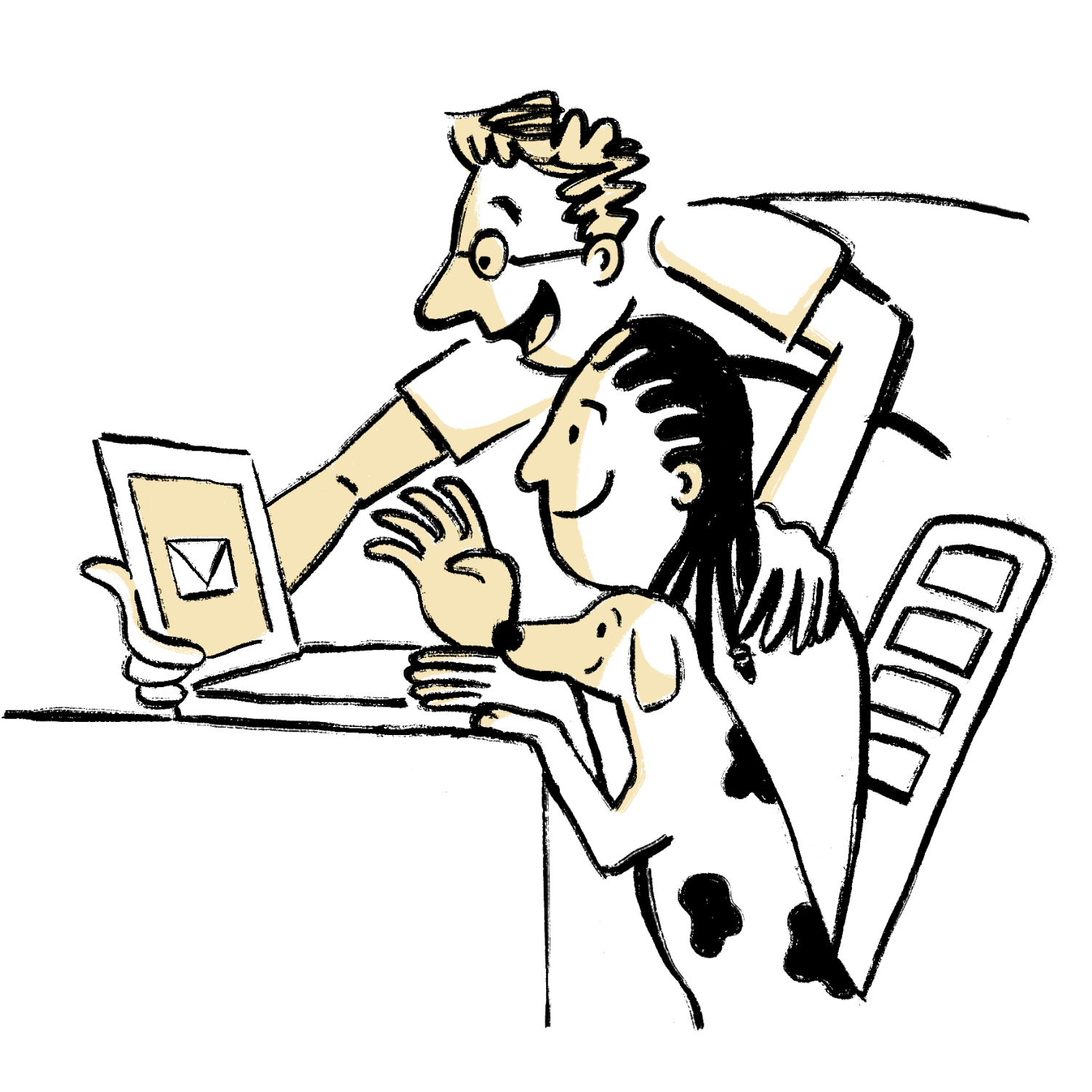The best music to write to (according to writers who listen to music while they write)
Classical. Motown. Mambo No. 5? Six authors on the music that keeps their words flowing.
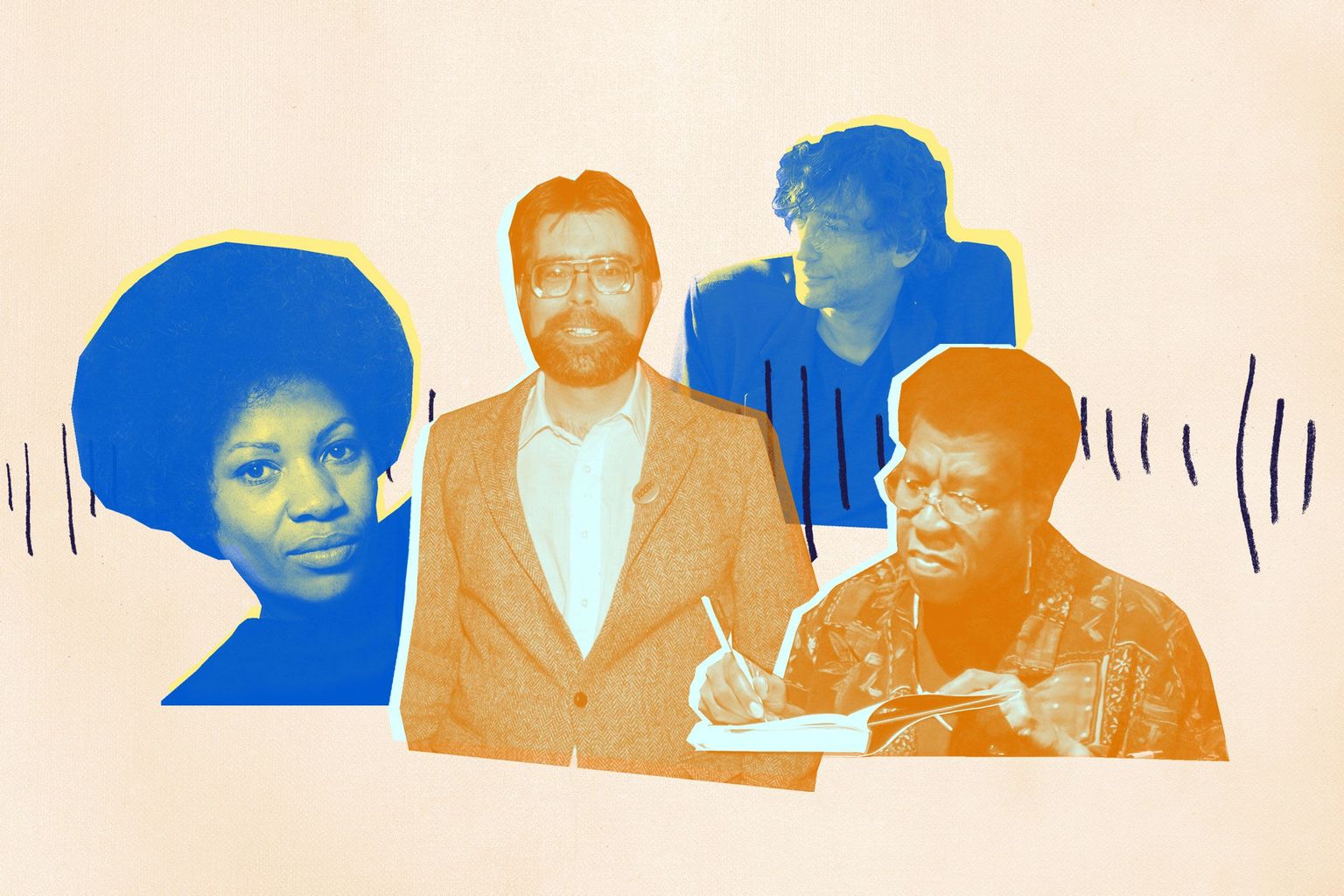
There are two types of writers: maniacs who write in absolute silence, and stable geniuses who listen to music while they churn out Pulitzer-worthy prose, each five-dollar word more poetic than the last. (Yes, I am listening to the meditative pluckings of John Fahey while writing this, what of it.) Okay so that's a tad combative—it's certainly possible to write in complete silence, and maybe even write well. But according to science, the vast majority of us write best with music playing.
In a 2012 study, researchers showed that most people reach peak cognitive performance in moderately noisy conditions. This explains why you may feel more productive responding to emails at a busy cafe, where the ambient noise can heighten your focus. And for those engaged in creative tasks, which require a state of flow rather than strict concentration, music has been shown to help ideas flow more freely, putting the listener into what you might annoyingly refer to as “The Zone”.
But what music should you pick when trying to do your best work? To find out, we dug into the listening habits of some of the world’s most successful authors, looking for the songs and albums that helped them finish their magnum opuses. Will listening to them turn you into a best-selling author? Unlikely! Will it reveal insights into these authors' inner lives? Maybe! Will it give you something to tap your feet to? Provided you enjoy classical, Motown, a genre we're generously calling ‘Gen X alt-country’, and—ah—Lou Bega's 1999 hit 'Mambo No. 5', then yes. Yes it will.
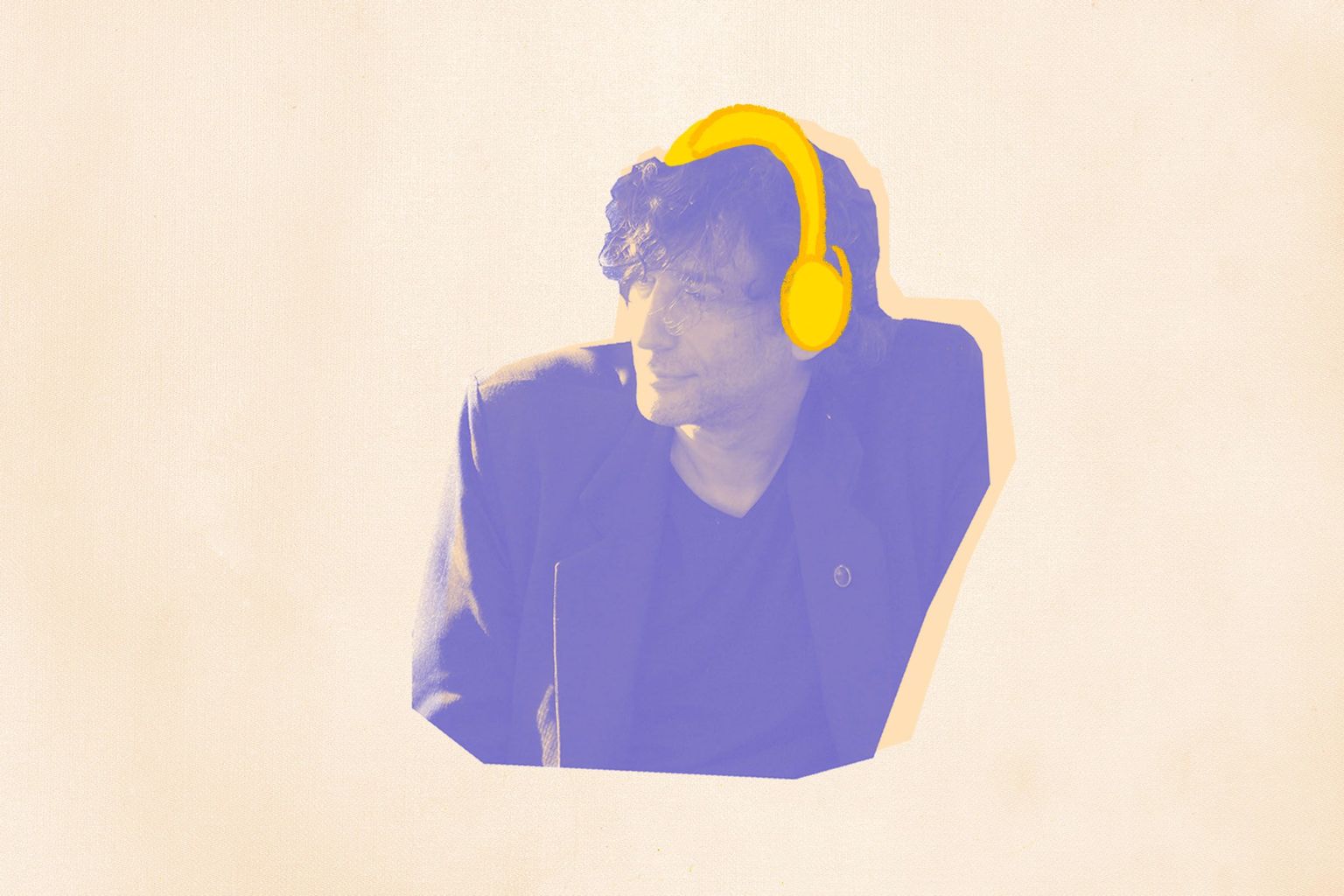
Neil Gaiman
It’s not hard to picture the protagonists of Neil Gaiman’s gothic comics and novels listening to swirling chamber music, its melodramatic tones echoing the complex, shadowy worlds they inhabit. Nor is it a huge surprise to read that Gaiman listens to much of the same type of music while writing in his picturesque gazebo. According to a 2017 interview with PBS NewsHour, Gaiman often listens to the film scores of composer Michael Nyman while working. He particularly enjoys the soundtracks for Peter Greenaway’s The Cook, the Thief, the Wife and His Lover and A Zed and Two Noughts, as well as Jane Campion’s The Piano.
“I can play those over and over again,” Gaiman said of Nyman’s works, surprisingly approximately no one that the master of modern gothic might take inspiration from Nyman’s grandiose, baroque arrangements. (If you managed to get through Sandman without hearing a harpsichord in your head, did you even read it?)
More surprising, perhaps, is that Gaiman also writes (or at least wrote) to the music of American indie band The Magnetic Fields—specifically their autobiographical concept album 50 Song Memoir, which features one song for every year of frontman Stephin Merritt’s life.
“The first 25 years are funny, and the second 25 years keep breaking your heart, over and over again,” Gaiman told PBS, indicating that it might be Merritt’s emotive storytelling, rather than his relatively unadorned musical arrangments, that resonates with the master of cosmic heartbreak. Whatever gets the juices flowing.
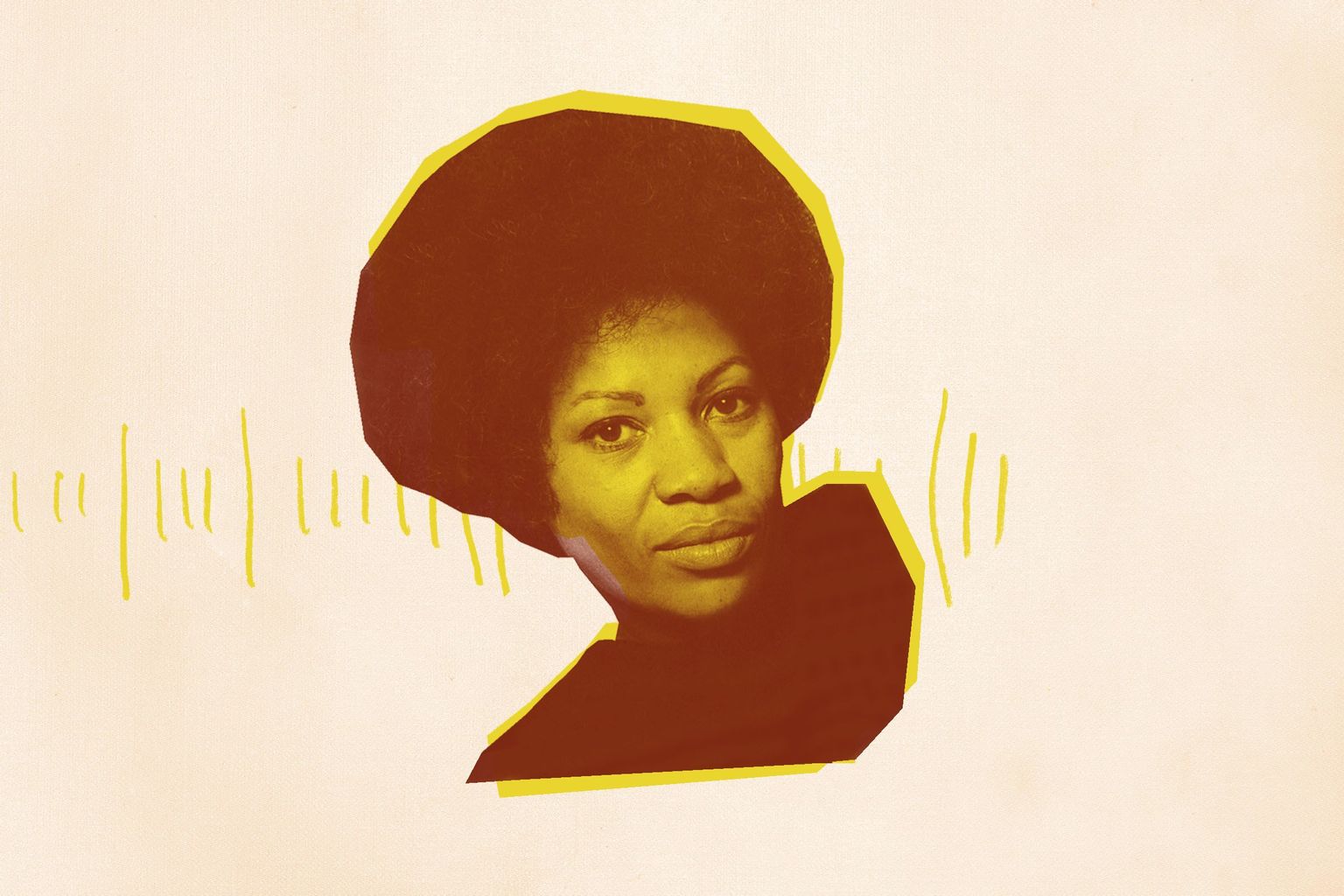
Toni Morrison
Toni Morrison didn’t just listen to music while she wrote—she let it infuse every element of her novels, shaping the rhythms and flow of her prose. In fact, the Nobel Prize-winning author arguably drew more inspiration from the contemporary musicians she admired than she did other writers. As she would tell the sociologist Paul Gilroy, Morrison wanted her writing to replicate “all of the intricacy, all of the discipline” that she heard in Black music.
Writing in Pitchfork not long after Morrison’s passing in 2019, Yale professor Daphne A. Brooks remarked that it was heartening to see how many of her obituarists “have noted the stirring lyricism of her prose, how the sagacity of her characters’ speech often amounts to blues poetry, how the spiritual ethics of her plot arcs sing truths like gospel, how her experimental structures sometimes resemble that of bebop cutting sessions.” How, in other words, Morrison's prose could mirror the depth and complexities of Black music itself.
No artist was more important to Morrison than Nina Simone, whose raw, plaintive voice managed to, as writer Emily Lordi put it in The New Yorker, turn “social exclusion into superlative beauty and style”. But it was jazz that Morrison prized most of all. As the Beloved author once wrote:
“Jazz has no final chord. As a result, it keeps listeners on the edge of their chairs always anticipating more. There is always something else that you want from the music. I want my books to be like that—because I want that feeling of something held in reserve and the sense that there is more—that you can’t have it all right now.”
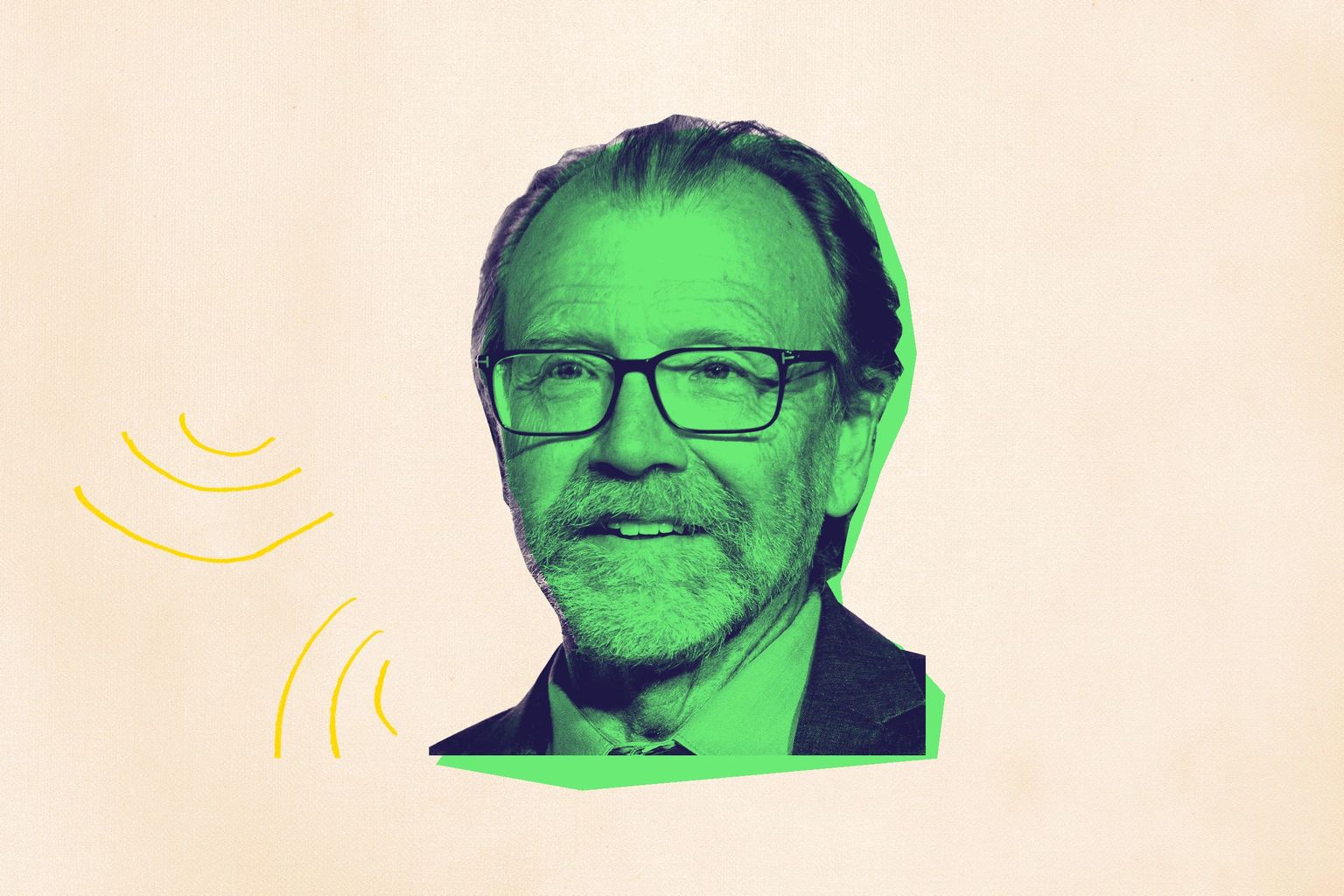
George Saunders
When George Saunders sits down to write the short stories that have made him one of the world’s most beloved authors, he usually writes in silence. (I retract what I said earlier about these types of people being crazy.) But while he was putting the final touches on his first novel, Lincoln in the Bardo, in 2017, he found himself listening to a number of songs on repeat. As he later reflected, these listening sessions were an attempt to re-energise himself during edits.
“I had read the book so many times and was trying to keep my attention high and my intention pure and found that listening to certain songs helped me remember,” he says. “Basically I was trying to tap into other people’s creative energy and, in this way, raise my own bar, so to speak.”
One song on heavy rotation during this period was ‘Via Chicago’ by Wilco. “There is something about that guitar solo, which is nicely distorted and is getting Bigsbyed slightly off-pitch,” Saunders says, “that embodied what I was trying to do in the book—make something highly melodic but sort of over-intense and overflowing its own banks.”
Other top picks included Sleater-Kinney’s ‘Jumpers’, (“the way that these witty, articulate, somewhat reserved people meld into a wildness machine when they play—there's so much love and death in their music”), anything by Jimi Hendrix, especially ‘Red House’, and the Miles Davis album Kind of Blue, which apparently reminded Saunders that “that intensity doesn’t have to be wild-assed but is always associated with close attention to whatever one is doing and the belief that everything can be contained in one simple endeavor”. Which is something I’ve always said.
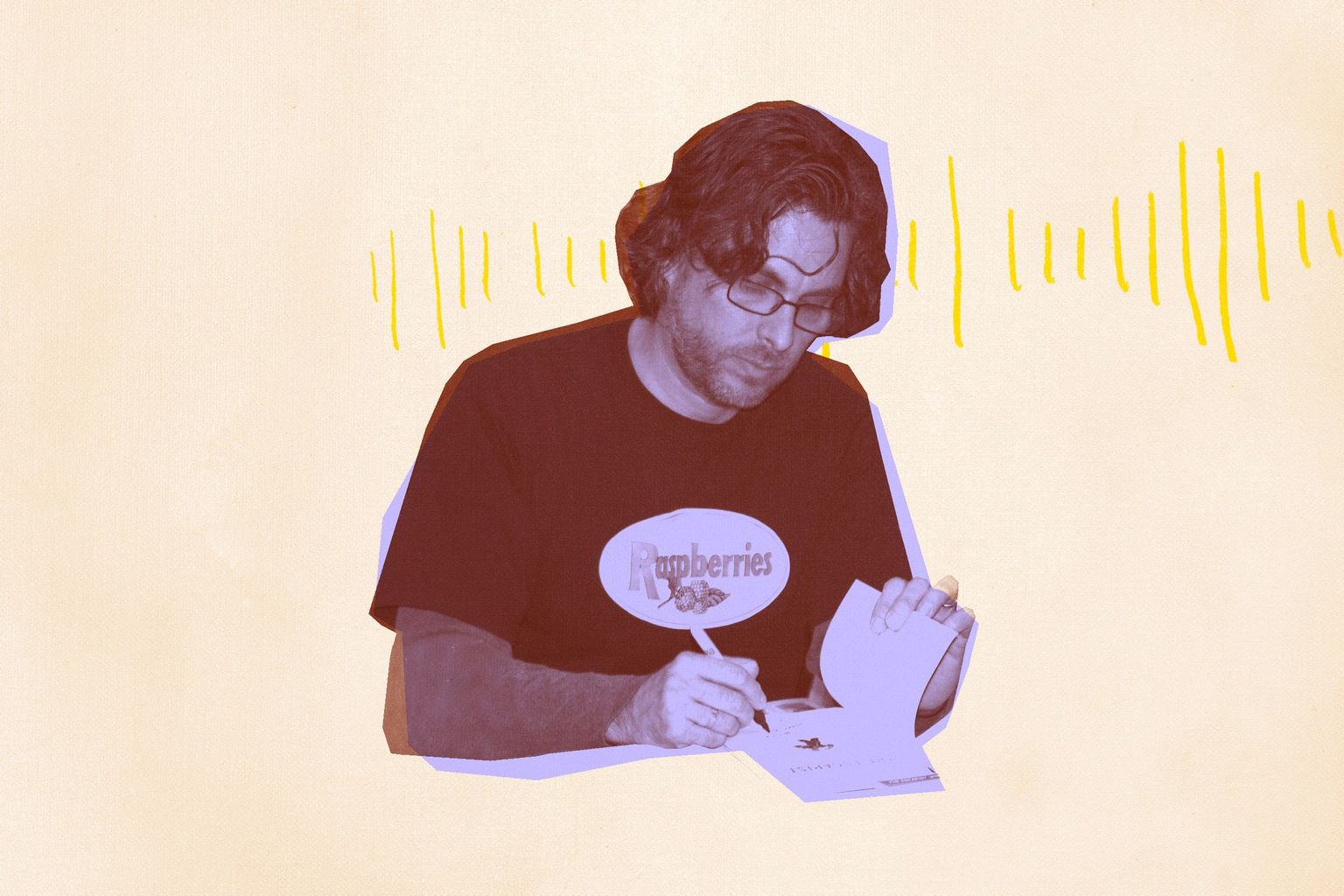
Michael Chabon
Some writers listen to music to get into a slate of flow. Michael Chabon listens to music to help him get out of it. When the Pulitzer-winning author was working on his 2012 novel Telegraph Avenue, he found himself listening to ’60s and ’70s jazz to help put him in the mind of his protagonist. Crucially, though, Chabon would only listen to music on vinyl, which meant he was constantly getting up to turn the album over.
Why? Because hunching over a laptop for hours on end is bad for your body. “If you listen to a record when you’re working,” Chabon told The Jewish Chronicle, “every 20 minutes or so you get up, go over to the turntable and turn the record over. That is exactly what ergonomics experts say you should do.”
Not that Chabon shuns streaming altogether. To help other writers get into the same sonic zone, Chabon maintains a series of writing playlists on Spotify and Apple Music based on his “current work go-tos, some old standbys, and some new faves.” Clearly a fan of the structured workday, Chabon curates his playlists with his eye on the clock, ensuring they’re “conveniently divisible into eight one-hour work sessions, four two-hour work sessions, two four-hour work sessions, or one eight-hour work session.”
“Or put on repeat and just don’t stop,” he adds. “Shuffle for a shorter vibe-wavelength, play through to sustain the vibe in album-length arcs.”
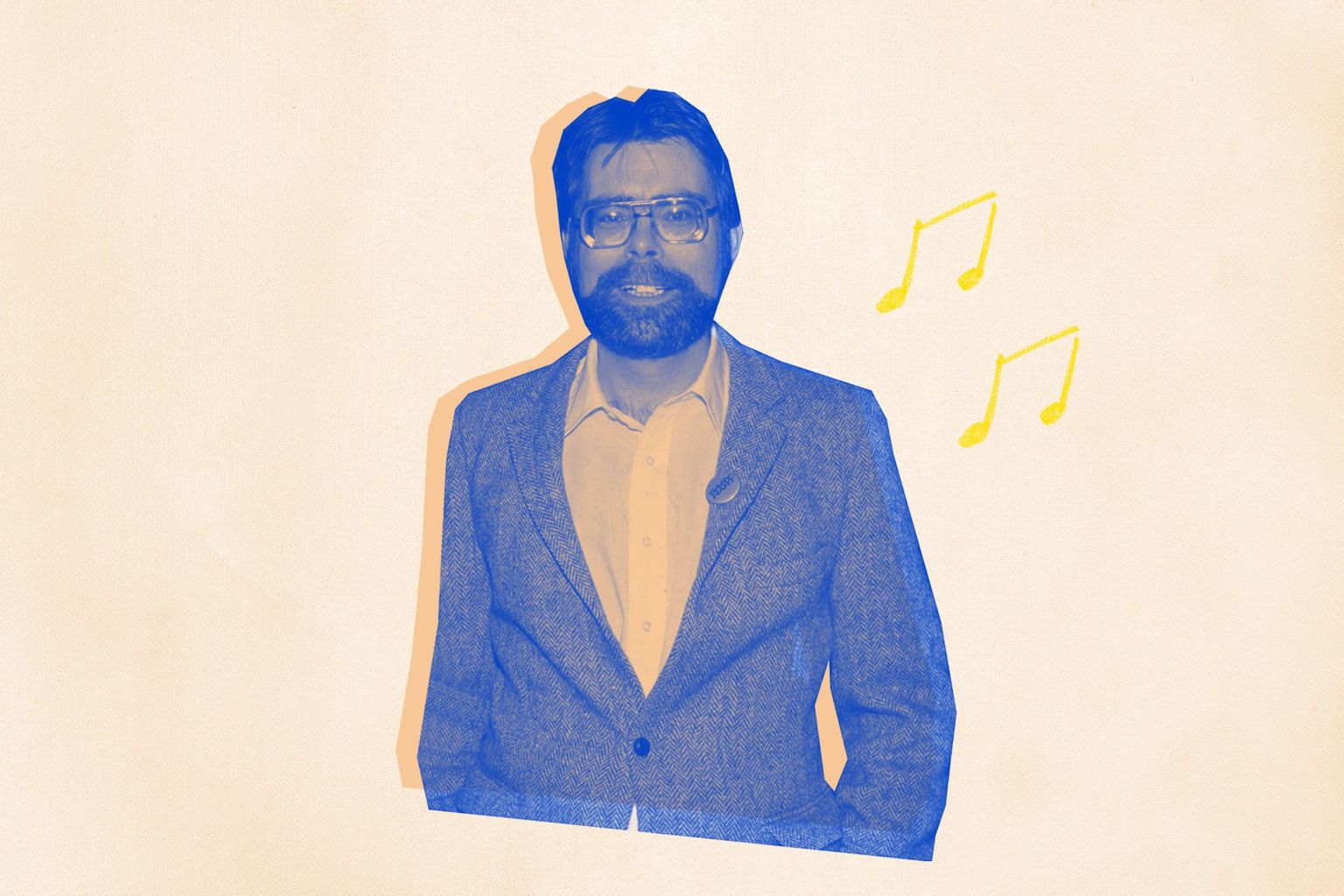
Stephen King
Stephen King is the author of so many horror classics that naming them almost feels pointless. But ask any writer-in-training and they’ll tell you he’s also the author of On Writing, a memoir-slash-writing guide full of practical wisdom and memorable aphorisms to help the aspiring writer hone their craft. It’s also dotted with vignettes from King’s early career. In one, King recounts the habit he formed in the ’70s of blasting whole albums like Bob Dylan’s Blonde on Blonde at intense volumes while he wrote. (This may explain all the Dylan songs featured in King’s books; there were 14 at last count.)
However, it seems King’s tastes may have degenerated in recent years. In a 2023 interview with Rolling Stone, he confessed to listening to just one song on repeat while writing his 2011 novel 11/22/63: Lou Bega’s ‘Mambo No. 5’.
“I played that thing until my wife just said, 'One more time, and I'm going to f**king leave you,” King told the reporter, confirming rumours that had (apparently) been circling him about his affection for the 1999 earworm.
Thankfully for his marriage, King has started to expand his musical horizons, though his penchant for repetition remains strong. "When I write, there are things that I can listen to a lot," he says. "And a lot of it is techno stuff or disco stuff, but techno in particular.”
“There's this group called LCD Soundsystem, and I love that. Fatboy Slim is somebody else. I can just listen to that stuff. If you tried to write and listen to Leonard Cohen, how the fuck would you do that? Because you'd have to listen to the words and you'd have to listen to what he's saying. But with some of the techno stuff, or KC and the Sunshine Band, Gloria Gaynor, it's all good."
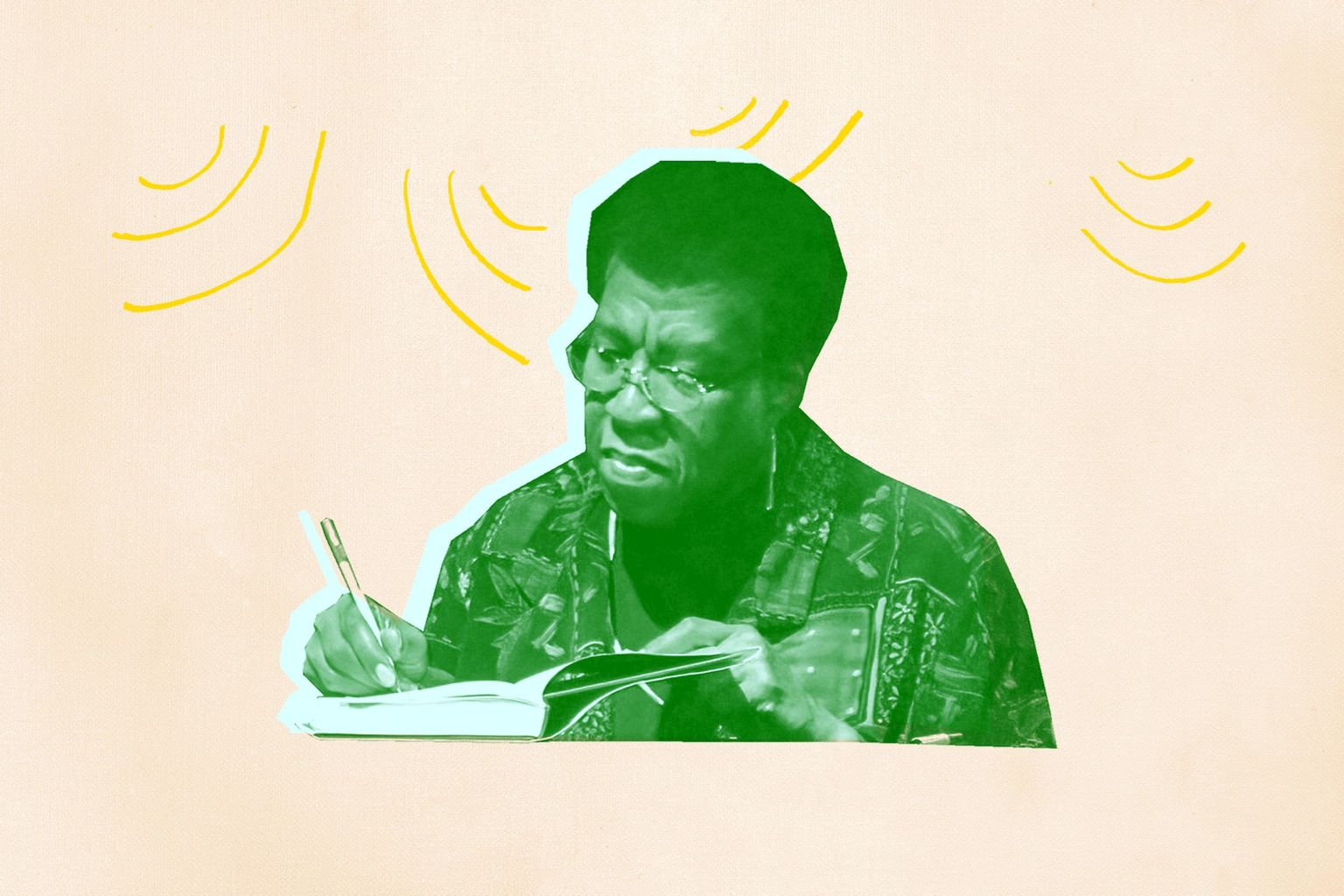
Octavia Butler
Spare a thought for Octavia Butler’s neighbours. Early mornings in her Los Angeles neighbourhood were punctuated not by birdsong, but by the pulsating energy of Motown vibrating through the walls. While most were just beginning their days, Butler—the so-called Mother of Afrofuturism and the first science fiction writer to be awarded the MacArthur Foundation “Genius Grant”—was usually already deep into her writing routine, starting most days at 5:30 a.m. And that writing routine involved listening to a lot of R&B and soul music. Often at great volume.
Writing in Essence in 2020, writer Tananarive Due recounted a morning she was scheduled to interview the esteemed author for a profile, six years before Butler's death. Arriving at the scheduled time, Due was greeted by the sound of Motown “blasting through the walls”. It took a barrage of knocking before Butler finally opened the door, apologising with a simple, “I listen to music when I write.”
Her Los Angeles neighbours may have begrudged this morning routine. But they should have been grateful they weren't living nextdoor when Butler was an up-and-coming author. Supposedly the young writer would begin writing at 2 a.m. before going to work as a telemarketer, potato chip inspector or dishwasher—a routine that makes Haruki Murakami's seem positively humane.
